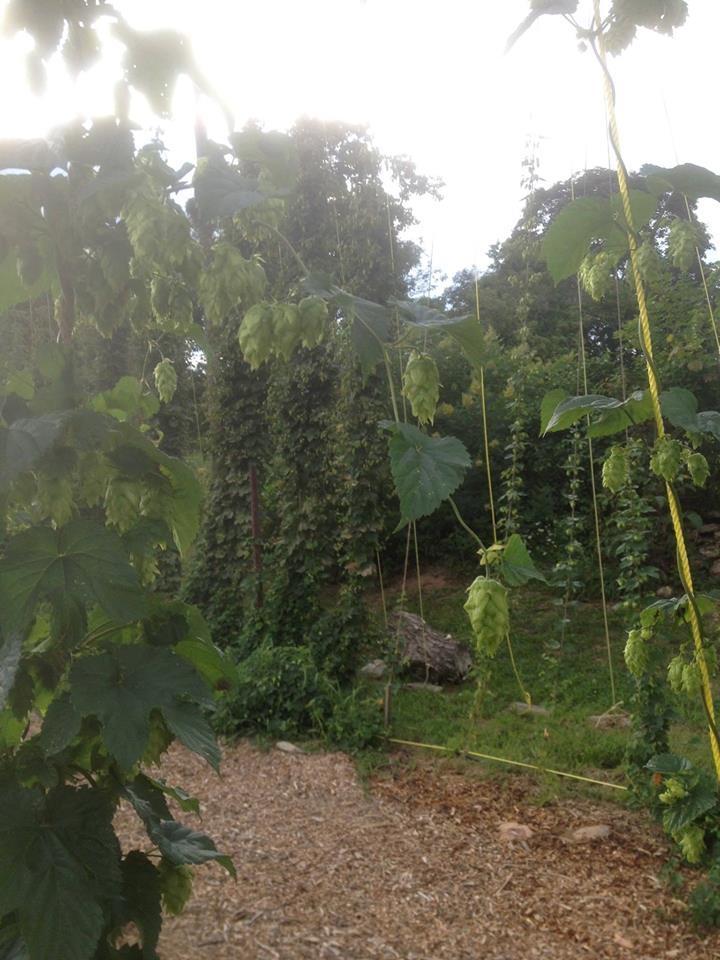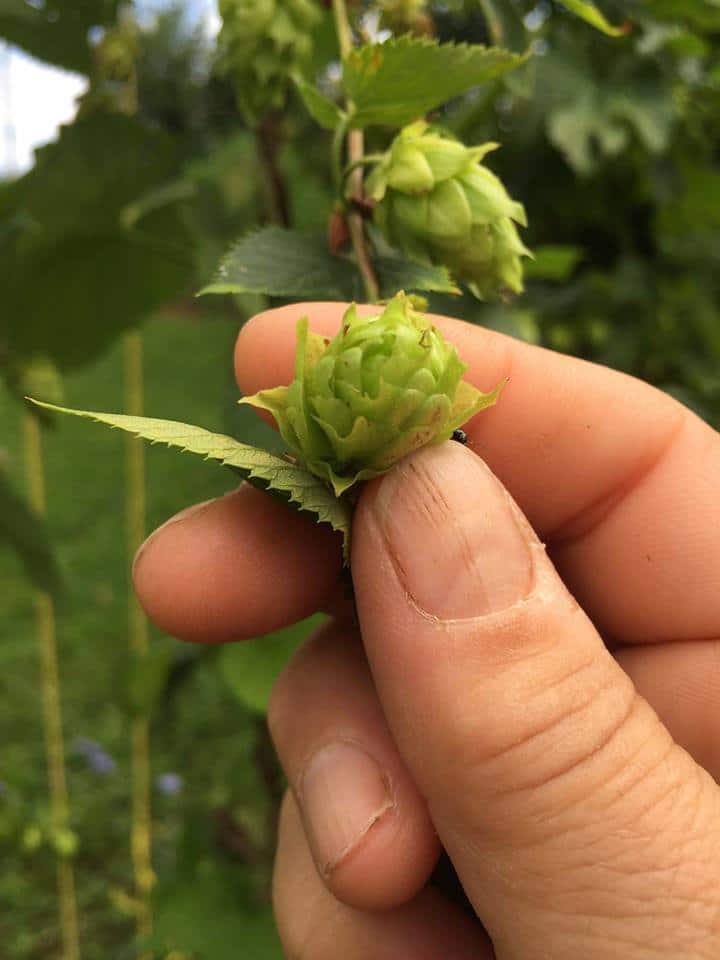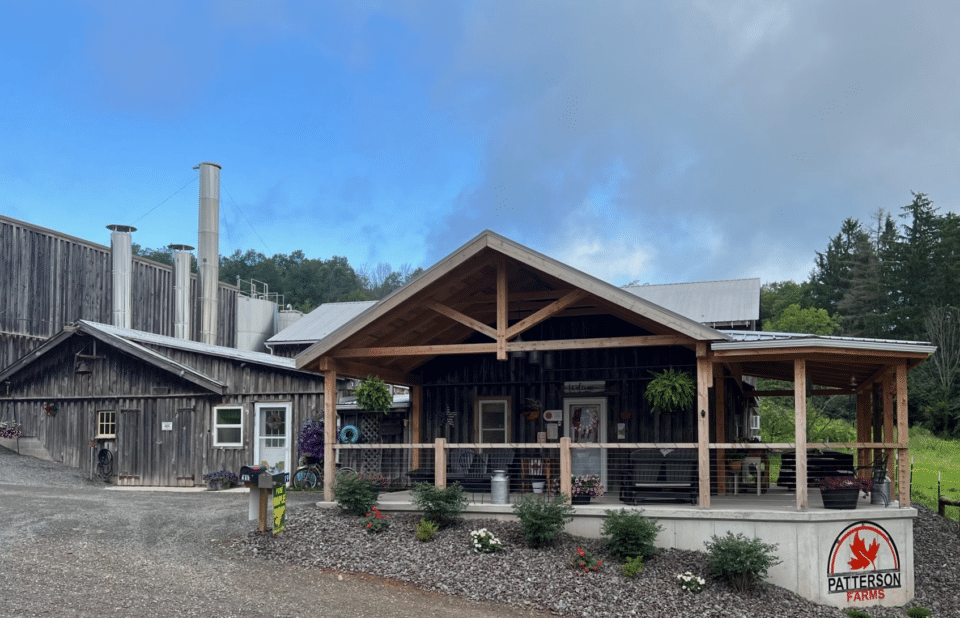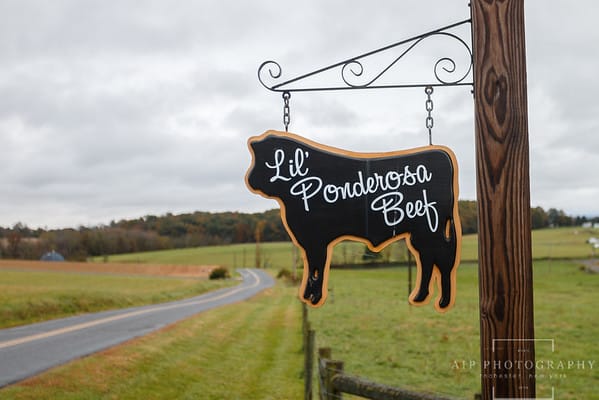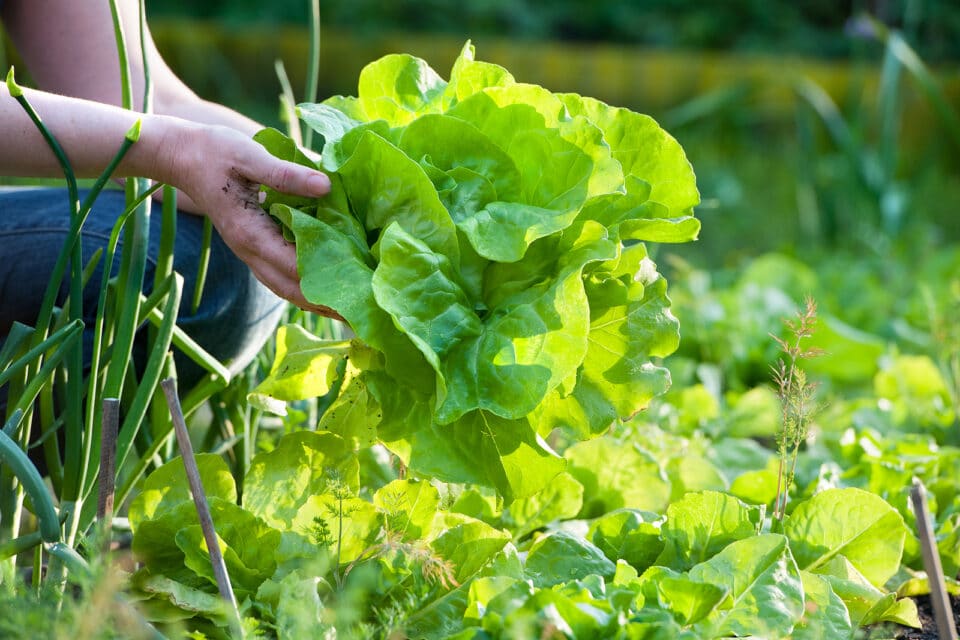In a world where we try to buy and eat locally from the fields and farms in our towns, why not buy your hops locally, as well? If you’re a homebrewer creating a high-quality and flavorful beer in Pennsylvania, look no further than Holtwood Hops in the heart of Lancaster County to supply your whole flower hops.
For owners Theo “Ted” Artz and his wife, Diane Zatz, growing hops is a way to serve small-scale brewers while producing a beautiful crop on their family farm.
We recently caught up with Diane to chat about what happens when you combine Lancaster County soil with Amish horse manure and well and rain water irrigation. Spoiler alert: Superb, lupulin-engorged hops!
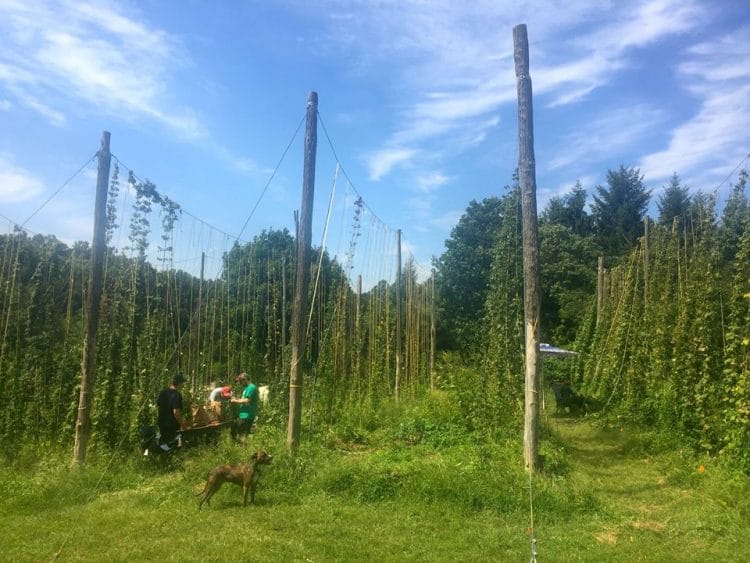
PA Eats: Can you tell us a little bit about how Holtwood Hops came about?
Diane Zatz: Holtwood Hops is a very small, very personal foray into hops growing, not a thriving commercial venture. My husband Ted was inspired to experiment with this crop on his family’s farm many years ago, while brewing at home with his father. At that time, in the 1980s and 90s, they found that the only hops readily available to home brewers were Czech Saaz pellets. Dismayed by the lack of variety, and intrigued by his father’s recollections of a time when hops were grown in abundance by the German settlers in Lancaster County, Ted challenged himself to try his hand at hops cultivation.
Do you remember the moment when you realized this could really work?
Ted did not begin this adventure to build a business. It was just a casual entry into farming, wanting to experiment with an unusual crop; one that had once been ubiquitous in the region. He started small, with Cascade, Galena and Mt. Hood varieties. Cascade, because it was most prevalent in the brewing industry, and the other two because of the exotic descriptions of their alpha acids.
He built the supports from trees he felled on the property. The original propagation yard was expanded after a few years, and more locust poles erected, more varietals planted. He wanted to see which hops could be grown successfully and sustainably. We have always wanted to grow the best quality crops for our family and friends who brew beer and love food. Just as we plant and nurture our culinary garden that grows foods that we eat, the goal is to supplement our supply and the challenge is to tend the land responsibly. Last season we planted a new crop, Yakon, another wonderfully odd tuber with purported beneficial health properties. We farm our hops and vegetables organically, with minimal machinery, donated family labor, our Amish neighbor’s manure and no real marketing strategy. It is a “labor of love.”
Were you inspired by the hops growing regions elsewhere, like the Pacific Northwest? Have you visited any of them?
We have not visited other hops farms. We research the few references available in books and follow the resources provided by the University of Vermont, Oregon, Michigan and Penn State. We have received copious advice about the business, but have not implemented any, to date. Hops growing takes up a lot of acreage. Farmers in the region traditionally grow soybeans, corn and tobacco — dependable sources of income. They are understandably conservative in their reliance on utilitarian, proven crops and reticent to risk their livelihood by straying from the tried and true. Hops require a great deal of infrastructure, they are labor intensive, and organic farming is unpredictable. It takes several years for a full, and hopefully profitable, yield.
Who is your clientele? Homebrewers? I see your hops have been used in cheese and kombucha, too!
We can supply homebrewers with adequate quantities of a top-quality product, but despite claims that the brewing community values a pure, whole leaf, hand-picked organic product, in reality, the convenience and price of commercially processed pellets has limited our clientele. We love hearing the raves of our loyal homebrewers who appreciate quality, and Renewal Kombucha‘s hops-infused drink success is gratifying (and delicious!). We have found homebrewers who are willing to experiment with their recipes, but that is not the norm. We are happy that several of the most serious have started growing their own from our rhizomes.
Economies of scale are the biggest impediment to development of a profitable business model. To be able to supply craft brewers would mean expanding to more acreage; scaling up on the growing side would mean a large investment in specialized machinery and labor force for tending, picking, drying and packing, as well as marketing — an investment that would detract from the therapeutic pleasure of the process of learning and working.
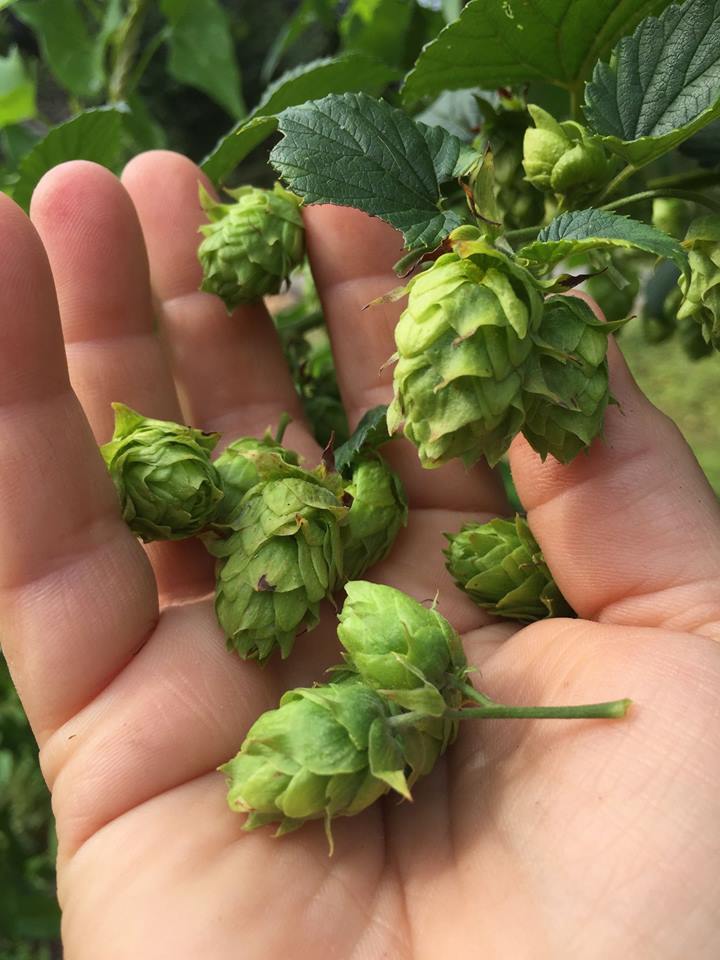
What’s the best time of year at the farm?
The best part of the season is harvest time, withstanding hurricanes and/or Japanese beetles. Nothing compares to an end of the day in August, filling bags with aromatic flowers with your hands covered in sticky lupalin.
You can find Holtwood Hops at 225 Clearview Rd. in Rawlinsville.
- Photos: Holtwood Hops
